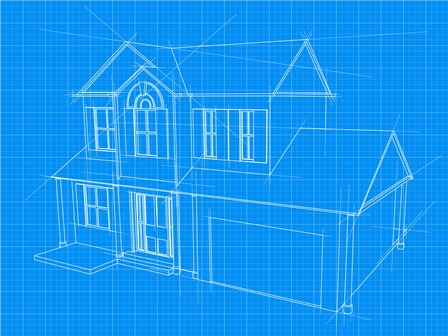

PA Supreme Court: Second Homeowners Barred from Suing Home Builders for Breach of Implied Warranty of Habitability
Summary:
- In Conway v. Cutler Group, The Pennsylvania (PA) Supreme Court unanimously overturned a 2012 Superior Court ruling. As a
 result, subsequent home owners in Pennsylvania can no longer bring implied warranty of habitability actions against home builders and developers
result, subsequent home owners in Pennsylvania can no longer bring implied warranty of habitability actions against home builders and developers - The approach to applied warranty claims still varies greatly from state-to-state, based on criteria such as a state's statute of repose
- Even with the Conway ruling, the Pennsylvania General Assembly could reopen the door via legislation for home owners to bring implied warranty of habitability claims against home builders
Discussion:
The case stems from a single family home constructed in 2003 that was subsequently purchased by the Conways in 2006. Several years after purchasing the home from the original owners, the Conways discovered water infiltration around the windows of their master bedroom and commenced an action against the original home developer and builder for breach of implied warranty for habitability. Prior to the Superior Court’s 2012 Conway decision, second owners could not maintain implied warranty claims in Pennsylvania because they lacked privity, a direct contract with the home builder.
The Superior Court held that a written contract between the builder and the second owner was not required for the second owner to bring an implied warranty claim for habitability. The Superior Court's reasoning was that not extending implied warranty rights to subsequent owners would unreasonably limit compensation for latent deficiencies that might not become apparent until many years after the home was built. Reversing the Superior Court, the Supreme Court in Conway re-established that an action for breach of implied warranty does require a contract with the home builder leaving subsequent home buyers in Pennsylvania unable to assert implied warranty claims.
Approach to Implied Warranty Claims Differs State-to-State
States are divided on whether or not to afford implied warranty claims rights to subsequent owners of residential properties. Subsequent home buyers in Mississippi, Montana, New Jersey, Iowa, Rhode Island and Vermont may, under certain circumstances, assert implied warranty claims for construction deficiencies, provided that the claims are filed within the time limits of the state’s statute of repose. For example, the New Jersey Statute of Repose prohibits any action, whether by the original or subsequent home buyer, filed more than 10 years after construction is substantially complete. While New Jersey home builders face liability to subsequent home owners, that liability is statutorily limited to 10 years. With the PA Supreme Court’s Conway ruling, Pennsylvania joins Missouri, North Carolina, Rhode Island and Vermont as states prohibiting implied warranty actions by subsequent owners against home builders and developers. If not for the Supreme Court’s decision in Conway, home builders in Pennsylvania would be exposed to implied warranty claims of subsequent purchasers (and potentially foreclosing lenders) for 12 years following construction under Pennsylvania’s Statute of Repose.
Change Could Come Via Legislation in PA
It remains to be seen whether the Pennsylvania General Assembly will re-open the door via legislation that would permit subsequent home purchasers to file lawsuits against home builders and developers for implied warranty claims arising from alleged latent construction deficiencies. In the meantime, home builders and developers in Pennsylvania should make sure that agreements of sale and express warranties include enforceable provisions preventing original purchasers from the assigning express warranties to second owners.
For more information about the Conway case and this E-Flash, or about Post & Schell’s Construction, Government Contracts and Surety Law Practice Group, contact John W. Dornberger at (717) 612-6037 or JDornberger@postschell.com.
Disclaimer: this E-Flash does not offer specific legal advice, nor does it create an attorney-client relationship. You should not reach any legal conclusions based on the information contained in this E-Flash without first seeking the advice of counsel.


